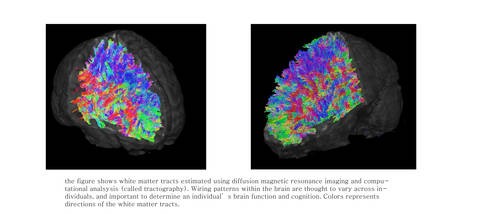Author Interviews, JAMA, Mental Health Research, OBGYNE, Pediatrics / 11.04.2018
Prenatal Exposure to SSRIs May Be Linked to Changes in Infant Brain Development
MedicalResearch.com Interview with:
Jiook Cha, PhD
Assistant Professor
Division of Child and Adolescent Psychiatry
Columbia University Medical Center
New York, NY 10032
MedicalResearch.com: What did we already know about the connection between maternal SSRI use during pregnancy and infant brain development, and how do the current study findings add to our understanding? What’s new/surprising here and why does it matter for mothers and babies?
Response: Prior studies have shown mixed results in terms of the associations between maternal SRI use during pregnancy and offspring’s brain and cognitive development. Neurobiological studies with animal models suggest that SSRI use perturbs serotonin signaling and that this has important effects on cognitive development (a study conducted an author of this paper, Jay Gingrich, MD, PhD: Ansorge et al., 2004, Science). The human literature has been more mixed in terms of the associations of prenatal exposure to SSRI with brain and cognitive development.
In our study, we used neonatal brain imaging because this is a direct, non-invasive method to test associations between SSRI use and brain development at an early developmental stage, limiting the effects of the post-natal environment. In our study, we had two different control groups, that is, a non-depressed SSRI-free group (healthy controls), and depressed but SSRI-free (SSRI controls) group. Also, in our study we used rigorous imaging analytics that significantly improve the quantitative nature of MR-derived signals from the brain structure using two of the nation’s fastest supercomputers (Argonne National Laboratory and Texas Advanced Computing Center) and allows robust reconstruction of brain’s grey and white matter structure in the infants’ brains.
We report a significant association of prenatal exposure to SSRI with a volume increases within many brain areas, including the amygdala and insula cortex, and an increase in white matter connection strength between the amygdala and insular cortex. We were surprised by the magnitude of the effects (or the statistical effect size), compared with other brain imaging studies in psychiatry with children or adults’ brains. Importantly, it should be noted that our estimates of brain structure are still experimental and for research-purpose only. This means that our data need to be replicated and rigorously tested against confounders in order to make a firm conclusion. While our study suggests a “potential” association between prenatal exposure to SSRI and a change in fetal or infant brain development, we still need more research.
 (more…)
(more…)
 (more…)
(more…)



